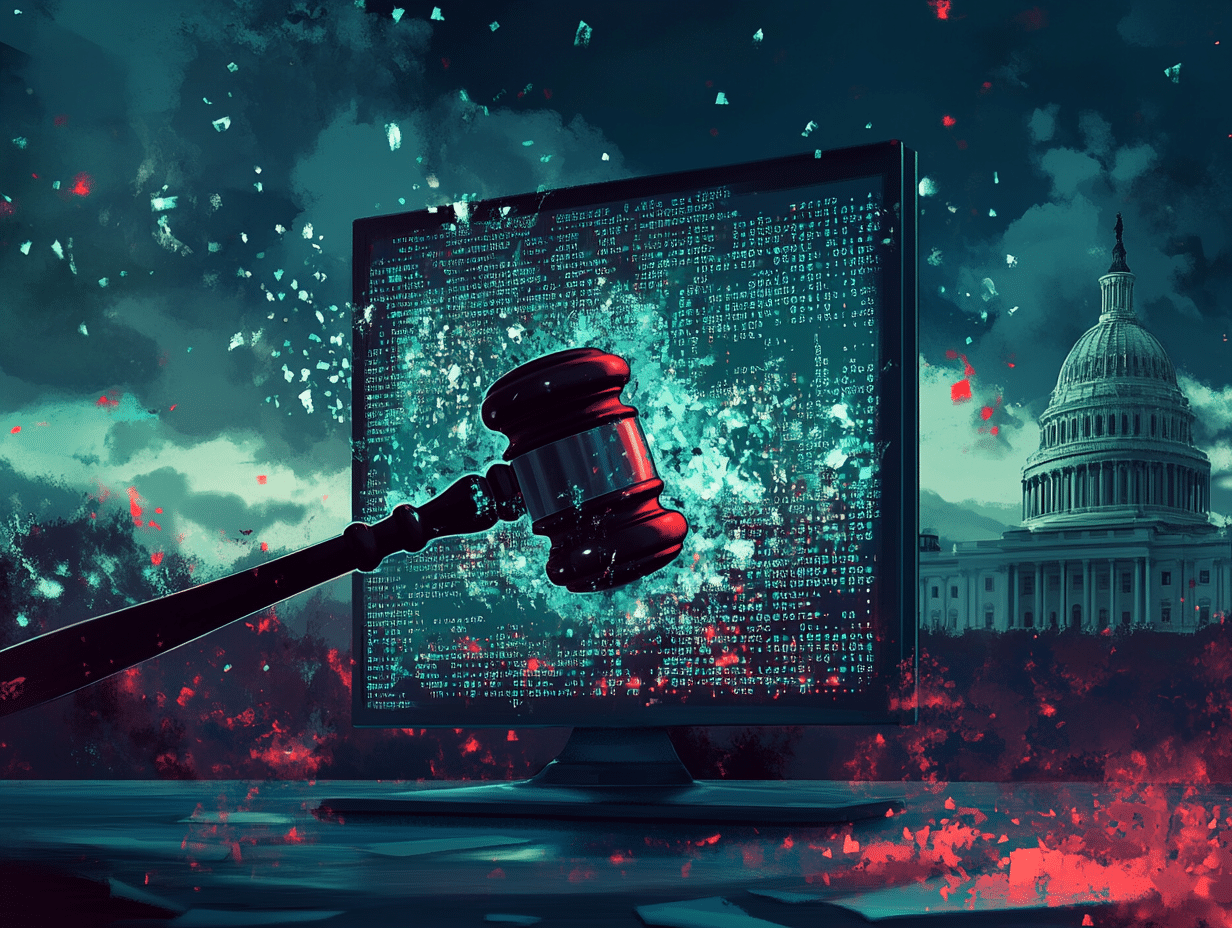The Take It Down Act criminalises the creation, possession, and distribution of AI-generated explicit content involving individuals without their consent. Key provisions include:
- Mandatory removal of flagged content within 48 hours by internet platforms.
- Criminal penalties of up to 2 years in prison for general offences, and 3 years if the deepfake involves minors.
- The law applies not just to distribution, but also to hosting and reposting.
This legislation marks the first time the U.S. has explicitly criminalised synthetic media of this nature at the federal level.
A Bipartisan Push with Big Tech Backing
Remarkably, the Act has drawn support from both sides of the aisle, with notable endorsements from Senator Ted Cruz, Representative Yvette Clarke, and Senator Amy Klobuchar. Even more notably, Meta, Snap, TikTok, and Google have publicly backed the legislation—highlighting a rare moment of consensus between lawmakers and tech giants.
Melania Trump’s Role
In a surprising twist, former First Lady Melania Trump made a public appearance on Capitol Hill to advocate for the bill. She framed it as a matter of dignity, safety, and decency, especially for young women and teenagers who are often the primary victims.
Her involvement gave the law a significant media boost and added a human face to the fight against digital abuse.
The Deepfake Epidemic
The urgency of the Act is backed by disturbing statistics:
- Deepfake pornography now accounts for 96% of all deepfake content online, according to a report by Deeptrace.
- A 2024 Pew Research study found that 1 in 8 women under 30 in the U.S. had been targeted by non-consensual deepfake imagery or threats thereof.
- Victims often face blackmail, online harassment, and even loss of employment, with virtually no legal recourse until now.
Broader Implications for AI Regulation
The Take It Down Act is part of a broader trend in U.S. policymaking to address the dark side of generative AI. While the EU has moved ahead with the AI Act, this American law reflects a more targeted, criminal justice-based approach. Rather than regulate AI holistically, the U.S. is choosing to legislate specific harms.
Concerns from Civil Liberties Groups
Despite widespread support, some civil liberties organisations have raised flags about potential overreach:
- The Electronic Frontier Foundation (EFF) warns that mandatory takedown provisions could encourage automated censorship, risking the removal of legitimate satire or artistic works.
- Others fear that enforcement may disproportionately affect sex workers or be used selectively.
Nonetheless, legal experts argue that the law includes clear intent requirements and exceptions for news reporting and public interest.
What’s Next?
The bill now awaits the signature of President Donald Trump, who has indicated he will sign it into law, making it enforceable within weeks.
The Take It Down Act is not just about content moderation—it’s about asserting digital dignity in the age of AI.






